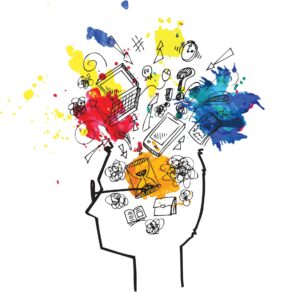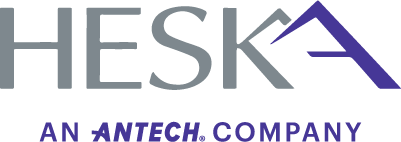Multitasking! Let’s Be Realistic!

Let’s Be Realistic!
In many places, technicians are in demand. Our industry does not seem to have enough people to fill the job openings.
I see job advertisements come across my social media feed regularly. All these ads have a theme in common, the requirement that, as technicians, we must ‘multitask’.
What is multitasking and how does it relate to complex tasks like dentistry and anesthesia? In our last article we discussed the complexities of anesthesia as it relates to dentistry. In this article I would like to explore how multitasking (or the illusion of it) can impact this type of work.
Picture This…
You have prepared yourself for the typical day. You know your clinic has a few elective procedures scheduled; a dentistry, an ovariohysterectomy, and a lumpectomy. You know your clinic has some outpatient appointments scheduled but you are sure some emergent things will be added to that list. Scheduling of people is decent but, as is typical, there are likely not enough people. You are expecting two technicians, a technician assistant, a veterinary medical receptionist, and two veterinarians.
So, coffee in hand, you are ready to tackle the day. Does the day go as expected? Well, any veterinary professional will tell you, of course it
does not.
Emergent calls result in additional appointments and diagnostics, and additional procedures. Suddenly, the staffing that looked just adequate, is now woefully lacking. The team is swamped. This is the multitaskers hay day, right? This is where we should shine, but do we?
What is Multitasking?
Multitasking is defined as: ‘The performance of more than one task at the same time.’ 1
When everything is very busy in a clinic this skill seems imperative.
Let’s look at the dentistry in the above example. A dentistry often takes (and should take) at least two people; one to perform the dentistry itself (charting, cleaning and radiographs) and the another to take on the anesthesia (performing, monitoring, and charting).
The earlier paragraph has 6 complex tasks.
There is not a single person that should take on all those tasks, but does it happen, all the time. I have found myself in the circumstance of
performing a dentistry and an anesthesia multiple times throughout my career. Is it right? Absolutely not.
Research is showing that multitasking is simply not a thing the human brain is capable of. ‘The short answer to whether people can really
multitask is no. Multitasking is a myth. The human brain cannot perform two tasks that require high-level brain function at once. Low level functions like breathing and pumping blood aren’t considered in multitasking. Only the tasks you have to “think” about are considered.
What actually happens when you think you are multitasking is that you are rapidly switching between tasks.’ 2
Despite all the pressure we put on ourselves to be superior at this much requested task, the reality is we are deluding ourselves to think we
are capable of it.
Dentistry & Anesthesia
This is an all-time pet peeve for many, me included. These two tasks are often grouped together because one technician is there, right?
One technician can listen to the multi-parameter monitor while doing the cleaning and can double check if things sound ‘off’, right? In this technician’s humble opinion, no we cannot.
There is so much going on during one dentistry and there are too many proverbial balls in the air for one of us to juggle them all successfully.
All the following must be done:
• The anesthesia itself (inclusive of everything before, during and after)
• Anesthetic charting (this is an intense task and should be 100% inclusive of everything done)
• The dentistry – technicians should be doing cleaning inclusive of the crown and subgingival curettage
• Dental charting (as with anesthetic charting this is an intense task and should be 100% inclusive of everything done)
• Dental Radiographs – ideally every dental patient should have full mouth radiographs included with their dental procedure
If everything goes smoothly, these tasks are often straightforward albeit complex. Realistically, some part of this process does not go smoothly.
As soon as a patient requires some sort of intervention, whether it be anesthesia related or dentistry related, suddenly, these tasks become that much more demanding.
Every dental procedure should have at least two people. Each person focused solely on their roles. Attempting to ‘multitask’ these complicated procedures leads to error. Something will get missed and there is no way of knowing if that something missed will be relatively minor or major.
The Unachievable?
We now know multitasking is not something the human brain is capable of, and we should not be taking on two huge tasks like anesthesia and dentistry as one technician.
What about the technician that seems to be able to tackle things like that though? Even though we should not, there are some people that seem to be able to handle about 10 things at once. What are they doing? Have they achieved the unachievable? The short answer is no, they have not.
What is going on in those moments of seemingly superhuman work is they are rapidly changing priority between complicated tasks. In some cases, this is very fast giving the illusion that they are taking on multiple things.
‘So, when you think you are multitasking you are actually switching your goals and turning the respective rules on and off in rapid succession. The switches are fast (tenths of a second) so you may not notice them, but those delays and the loss of focus can add up.’ 2
This is a neat skill that can be practiced. People can and do get better with time, however, there is no room for this when doing tasks like anesthesia, dentistry, or other procedures for that matter. As stated above, the delays and loss of focus can result in consequences and in medicine those consequences can be far too costly.
Speak Up.
I know I have found myself in situations like this many times, having to look after two major things seemingly at once. My mistake has been not speaking up and just saying yes. Just because I have done dentistry and anesthesia simultaneously (without major error) does not make it right.
If you feel your attention torn between tasks and like you cannot commit enough to prevent an error, talk to the attending veterinarian, ask for help. It is okay. You have what is best for your patient in mind.
The demand for multitasking is simply not achievable but you can learn to be effective and efficient at switching your priority amongst tasks but even the best at this skill need support.
Remember, we work in a team, and we all need that support more than we ask for it.
References:
1. Oxford Languages and Google – English. (n.d.).
Retrieved from https://languages.oup.com/googledictionary-en/
2. Adams, C. (n.d.). Can people really multitask?
ThoughtCo. https://www.thoughtco.com/can-peoplereally-multitask-1206398

